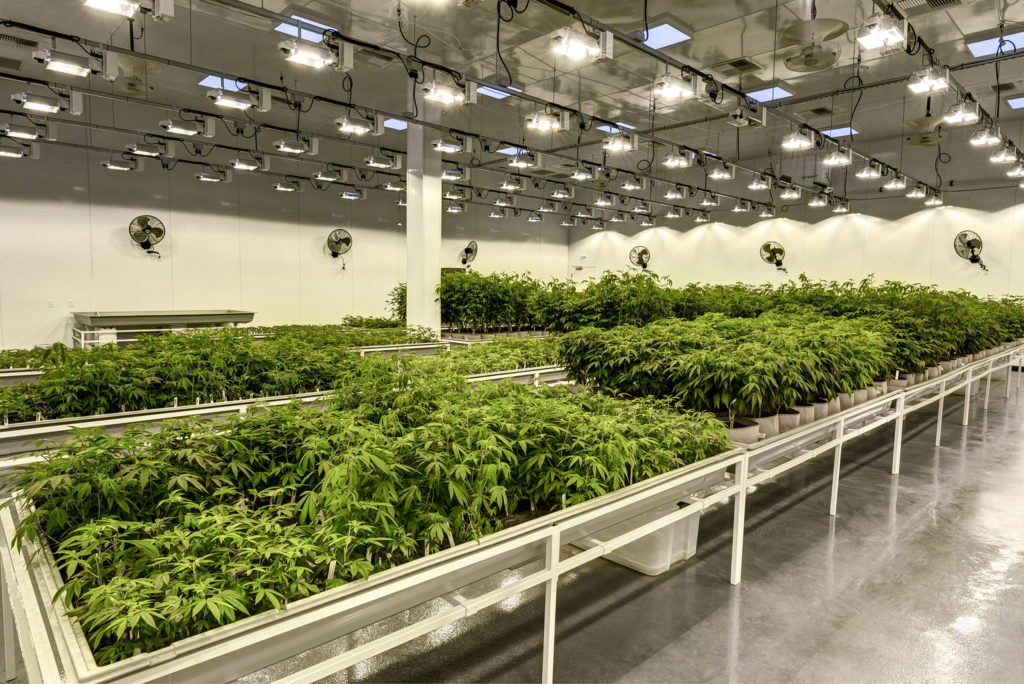Category: builder
Cannabis Facility Construction Completes Construction of New Flagship Dispensary for Greenhouse Cannabis
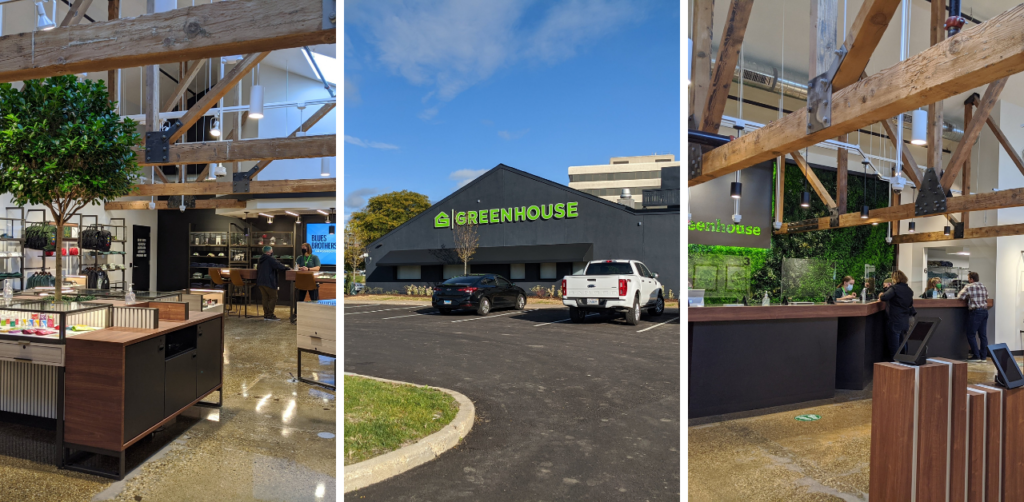
NORTHBROOK, IL (OCTOBER 5, 2020) – Cannabis Facility Construction (CFC), a national, full-service, cannabis design-build construction firm based in Northbrook, IL, has just completed construction of a new recreational and medical cannabis dispensary for Greenhouse. The new flagship dispensary, located at 755 Skokie Boulevard in Northbrook, IL, opened to the public on September 29 and offers 9,982 square feet of finished space.
“It’s been an honor working with Greenhouse on this new flagship dispensary offering an enjoyable, high-quality customer experience,” said Andy Poticha, Principal at Cannabis Facility Construction. “As their design-build partner, our team has delivered dispensaries for Greenhouse across multiple states over the past six years and we are tremendously excited to deliver yet another, this time right in our own backyard.”
Construction commenced in May, revitalizing the site and the surrounding area that had been vacant for quite some time.
The location’s sleek, modern, industrial design represents a new look for the Greenhouse brand and features an open floor plan with high vaulted ceilings, skylights, abundant natural light. The point of sale stations, consultation areas and easy-to-browse product displays provide ease and comfort for social distancing and complement the wood and masonry structure.
In order to create a differentiated and welcoming customer experience, careful consideration has been given to both customer traffic flow, and the reality of social distancing with all points of sale six feet apart, so transactions take place with proper space between people at the counter. In addition to the retail space up front, the location also includes back office space, a secure, oversized vault for substantial inventory storage and a highly advanced security system.
CFC’s work complements exterior infrastructure improvements that happened simultaneously, revitalizing the surrounding area with natural landscaping, a retention pond, large parking lot, and new turn lane from Skokie Boulevard.
A leader in serving the construction needs of the cannabis industry since 2015, Cannabis Facility Construction has built more than 30 cultivation centers, processing laboratories and retail dispensaries customized for the needs of medical and recreational cannabis clients in 10 states.
For more information on CFC or to connect with principals Andy Poticha, Ira Singer, and Mike Frazin, please visit www.cannabisfacility.net.
In 2020, Cannabis Construction Must Offer Security of a Bank, Compliance of a Pharmaceutical Company, Aesthetic of a High-end Retailer
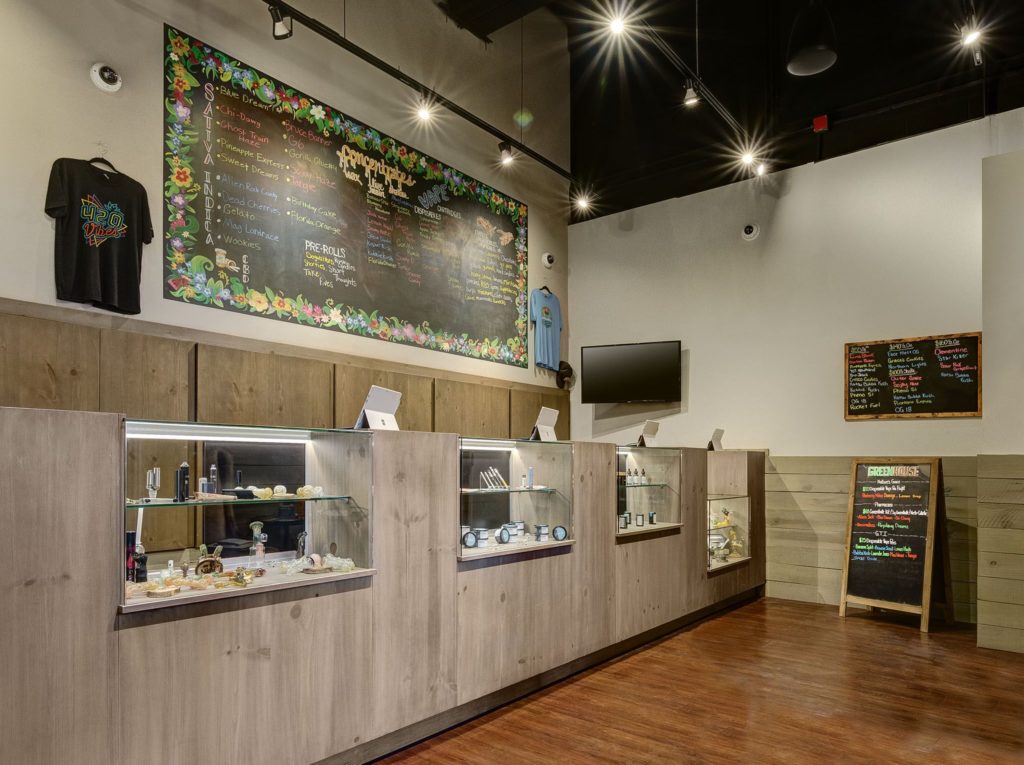
Legal recreational cannabis is a new industry in Illinois—and it’s in dire need of customized facilities. The first month of recreational cannabis sales in Illinois amounted to nearly $40 million. Sales figures spell opportunity both for cannabis companies and for experts in building special-purpose facilities for the industry’s stringent regulations and experience-driven customers.
Andy Poticha, Principal at Cannabis Facility Construction (CFC) has been involved in more than 30 cultivation, processing center and dispensary projects in eight states since 2015. He’s leading renovation projects that offer Illinois more than 35,000 new square feet of cannabis cultivation areas and dispensaries customized for the needs of recreational cannabis customers.
“To become recreational cannabis users’ preferred dispensary, new cannabis license holders must prioritize both compliance and customers in their facility design,” Poticha observes. The design/build process must support two core objectives:
- Prioritize compliance or suffer the consequences. To maintain product supply and operational retail sales, stick to strict protocols and carefully follow building codes related to the handling, storage and distribution of cannabis throughout the supply chain.
- Offer a differentiated customer experience. Product commoditization and restricted in-state cannabis sourcing leads to stiff competition between dispensaries.
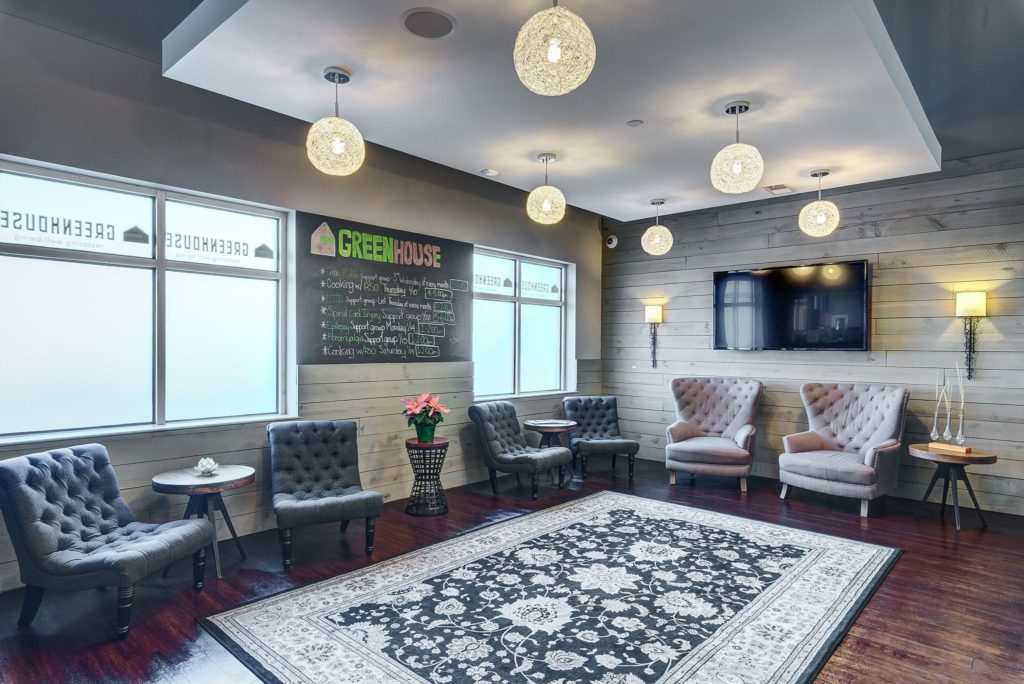
“Cannabis companies need to offer the security of a bank branch, the compliance of a pharmaceutical company, and the aesthetic of a high-end retailer,” said Poticha. “Designing for the customer experience, creating welcoming sales environments that are compliant with regulations, is where dispensaries can find true opportunity to differentiate themselves from the competition.”
For nearly five years, CFC has worked with numerous cannabis companies, including Grassroots Cannabis, a vertically integrated multi-state cannabis company. For co-founder Mitch Kahn, CFC has helped Grassroots embrace these seemingly competing objectives into a cohesive customer experience.
“Partnering with CFC, we have been thoughtful about connecting the design/build process with our customer experience and compliance objectives,” said Kahn. “Together, we identified and solved potential issues early in the design/build process, so that the build-out is supportive of sales, security, and being good neighbors in our communities.”
Stipulated Sum Agreements Make Us the Right Builder for You
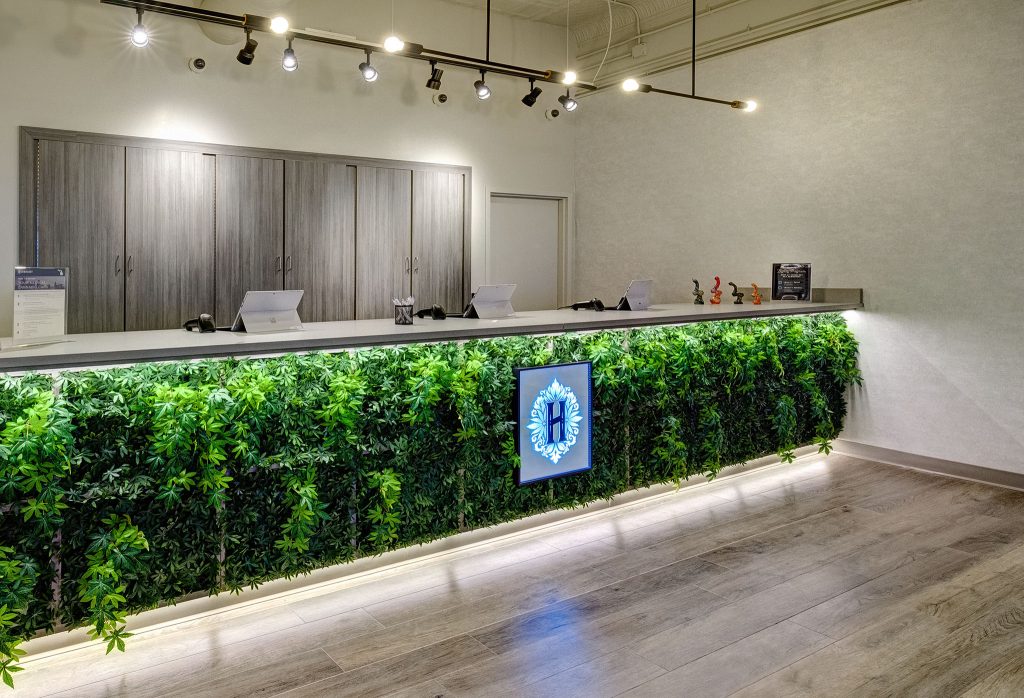
Our goal as a design-build firm is to create value for our clients through outstanding service-delivery and building trusted relationships. One of the many ways we achieve our goal is how we structure our contracts. Our clients want to know what they’re paying for, and we are able to clearly spell that out by providing stipulated sum agreements.
What is a Stipulated Sum?
Also referred to as a lump sum contract, a stipulated sum requires a builder to agree to provide specified services for a fixed price based on labor and material costs. The builder is responsible for executing the job properly and will provide its own means and methods to complete the project. Specifically, we use stipulated sum agreements with our multifamily and commercial projects, and they allow us to better define the scope and schedule of projects.
“We have always been client-centric, and what that means is that we want our clients to look at us as their design-build partners. The way we have been set up from inception has lent itself to that type of relationship.”
– Andy Poticha
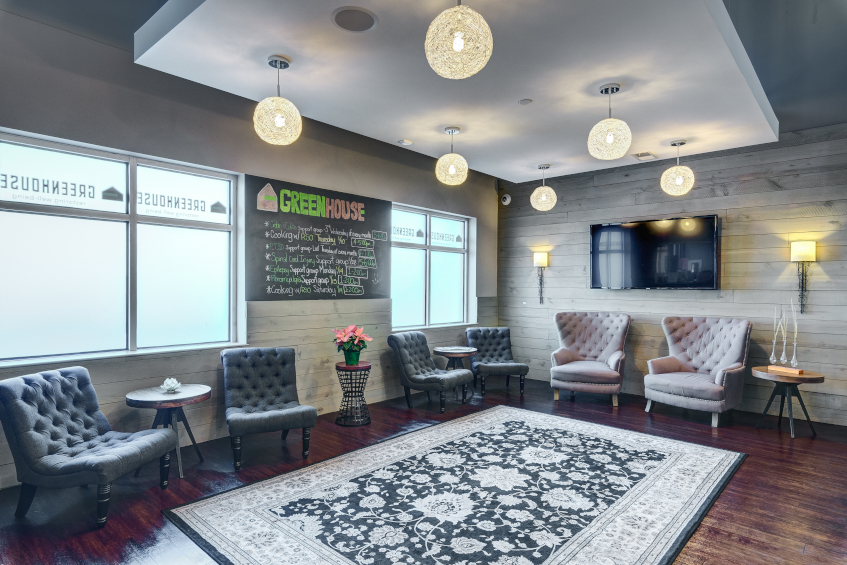
Why We Use Stipulated Sums
Cannabis Facility Construction uses stipulated sums so that our clients know what they’re getting, and we know exactly what we need to deliver. Our contracts are predictable and easy to manage and benefit our clients in the following ways:
No Hidden Fees
One of Cannabis Facility Construction’s key differentiators is that we never stick our clients with hidden fees, compared to cost-plus-fixed-fee and other contracts. “We don’t charge, as most architects and most contractors do, a percentage of construction,” said Andy Poticha, Principal of Cannabis Facility Construction, on the Cannabis Legalization News podcast. “You have no incentive to finish a job on time and you have every incentive to make it cost more money. We said if we’re truly going to be partners with our clients, we need to have some skin in the game. We’re going to be offering them our process and our intellectual property, and we’re going to say that the project’s going to take this long, and our fee is going to be a stipulated sum based on how long that’s going to take.”
Predictability
Our clients value the predictability of stipulated sum agreements, especially since they reduce risk and give them more confidence. With an agreed upon sum in place, our clients are not liable for any cost overruns. “It doesn’t matter to us if the project is $6,000, $600,000, $60 Million, or $600 million,” added Poticha. “If it takes six months to do, our fees are going to be the same. Our clients understand that we have an incentive to finish it in the time that we’ve agreed to. But just as importantly, we have the incentive to make sure that our client is getting the most bang for their buck without us having the incentive of trying to sell them something more.”
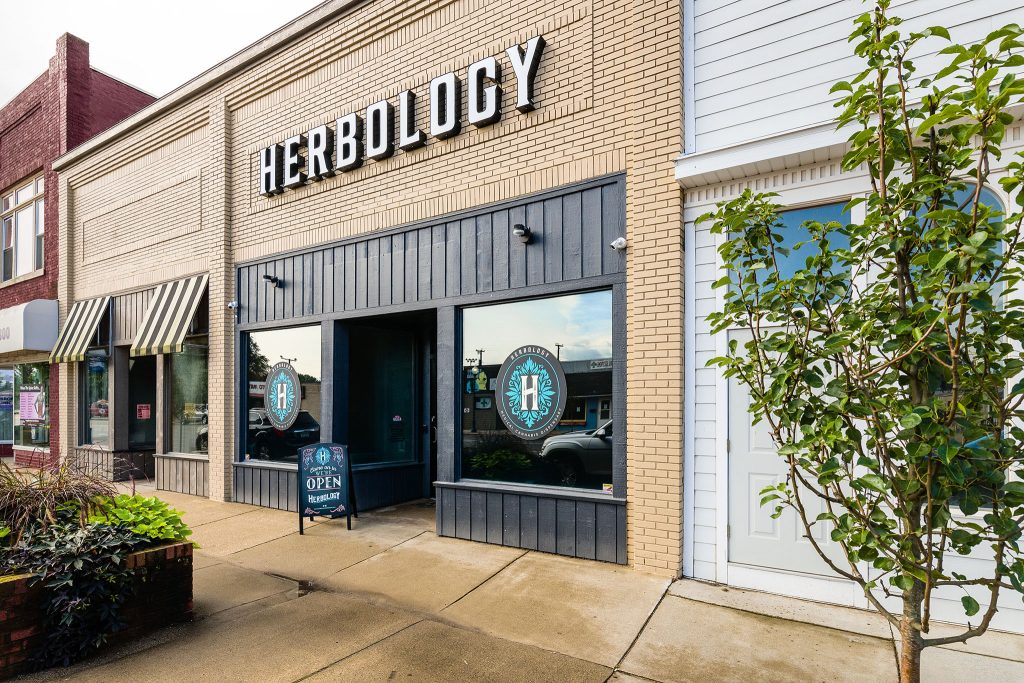
Better Collaboration
We find that stipulated sum arrangements foster a greater degree of collaboration between Cannabis Facility Construction and our clients. We are able to execute tight project management and more efficient communication to ensure that both parties are adhering to the scope of work. “We are very different in our approach to how we look at our clients,” said Poticha. “We have always been client-centric, and what that means is that we want our clients to look at us as their design-build partners. The way we have been set up from inception has lent itself to that type of relationship.”
The design-build methodology supports our goal because it allows us to streamline the construction process, which ultimately benefits our clients and our management team. “We look at every project not as a one-time project, how much money can we make, finish it, and go on to the next project,” added Poticha. “We’re offering our client this partnership so that they can go on and do what they do best, while we do what we do best.”
